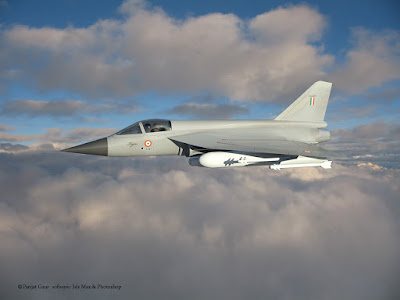The Hindustan Aeronautics Tejas Mk. II fighter is only likely to achieve its maiden flight in 2019, and become operational in 2022. The disclosure was made in India’s parliament by defence minister Manohar Parrikar following a query from a colleague.
He adds that when the Mk. II was sanctioned in 2009, the estimated development cost was Rs24 billion ($389 million), with a project completion date set for 2018.
Only after 2022 will the jet be inducted into the Indian air force.
The Tejas Mk. II will be powered by the General Electric F414 engine, as compared to the less powerful F404 that powers the Tejas Mk. I, which received initial operational clearance in 2013, but which has been plagued with delays and problems.
Earlier this year, India’s Comptroller and Auditor General issued a damning report of the aircraft, which was developed by the country’s Aeronautical Development Agency. The report condemned the aircraft on a range of parameters, from pilot protection to internal fuel capacity.
The Mk. II, which is seen as having the potential to rectify the issues found with the Mk. I, and will have improvements such as active electronically scanned array (AESA) radar, an improved electronic warfare suite, and other improvements. Much of the equipment will developed indigenously in India.
He adds that when the Mk. II was sanctioned in 2009, the estimated development cost was Rs24 billion ($389 million), with a project completion date set for 2018.
Only after 2022 will the jet be inducted into the Indian air force.
The Tejas Mk. II will be powered by the General Electric F414 engine, as compared to the less powerful F404 that powers the Tejas Mk. I, which received initial operational clearance in 2013, but which has been plagued with delays and problems.
 |
| Tejas Mk. II fighter |
Earlier this year, India’s Comptroller and Auditor General issued a damning report of the aircraft, which was developed by the country’s Aeronautical Development Agency. The report condemned the aircraft on a range of parameters, from pilot protection to internal fuel capacity.
The Mk. II, which is seen as having the potential to rectify the issues found with the Mk. I, and will have improvements such as active electronically scanned array (AESA) radar, an improved electronic warfare suite, and other improvements. Much of the equipment will developed indigenously in India.




No comments:
Post a Comment